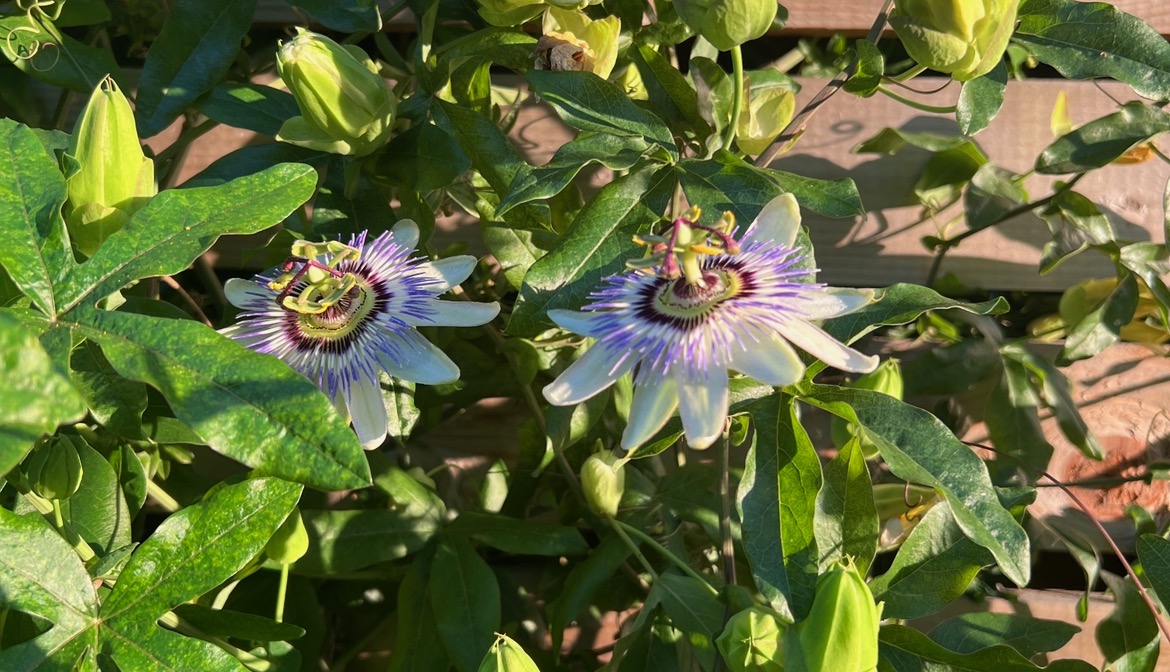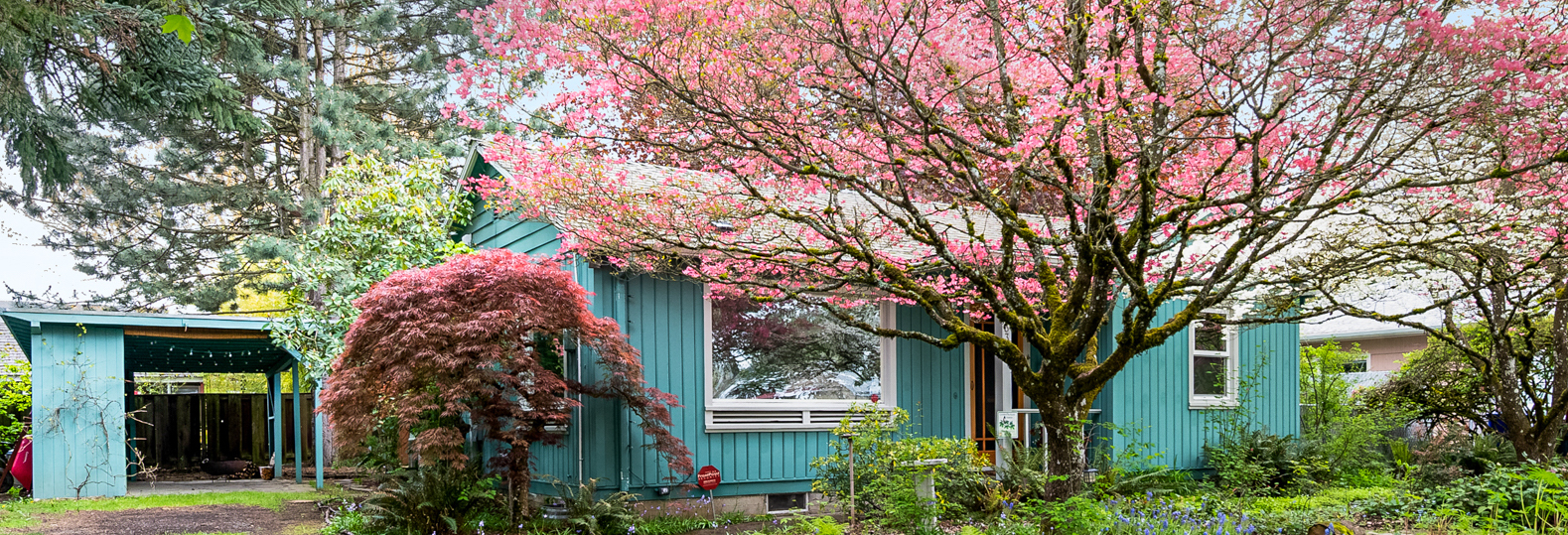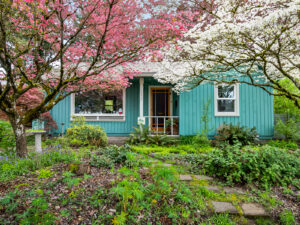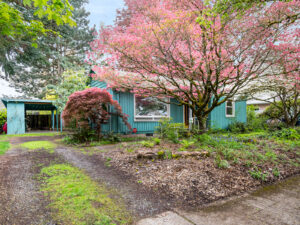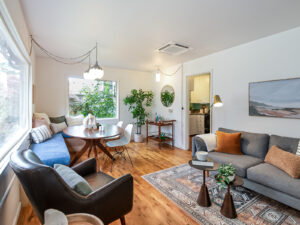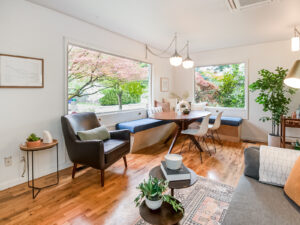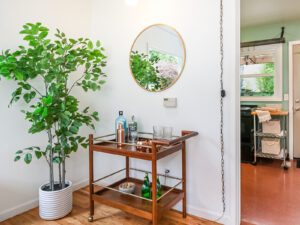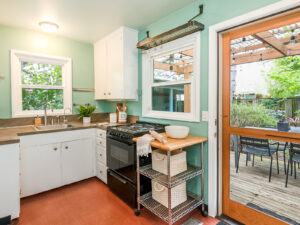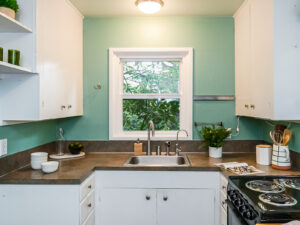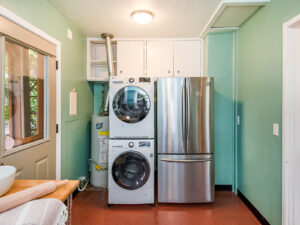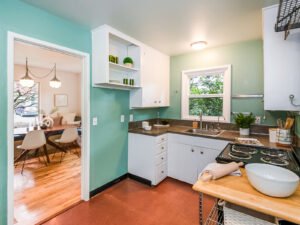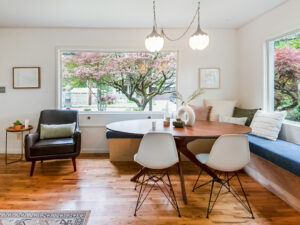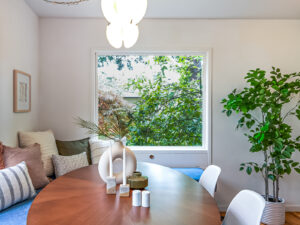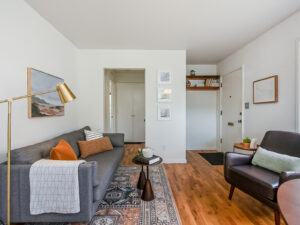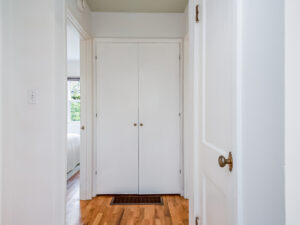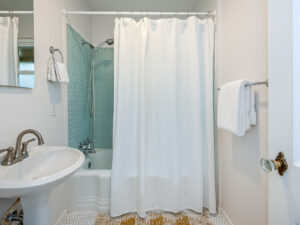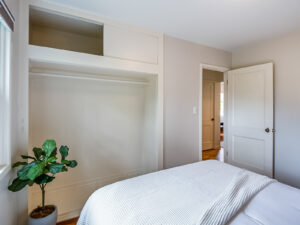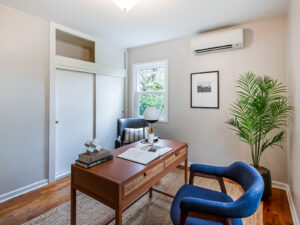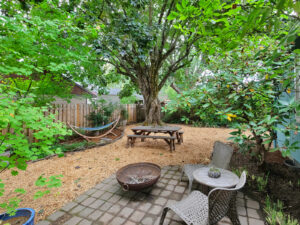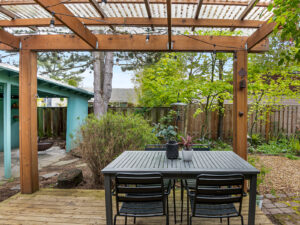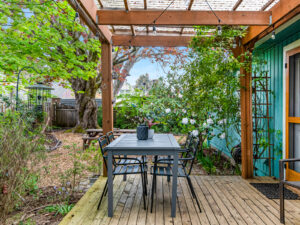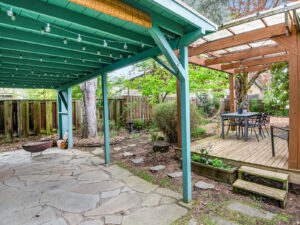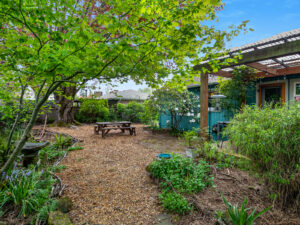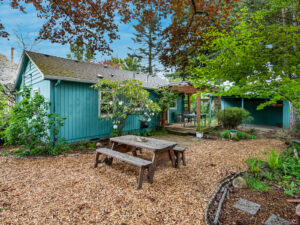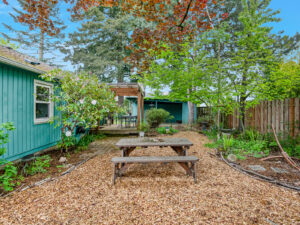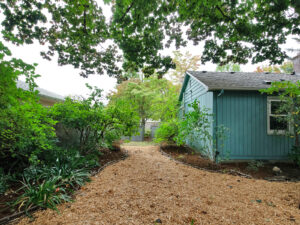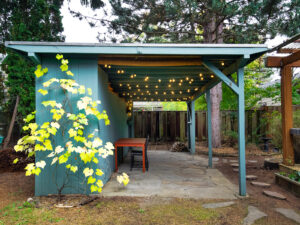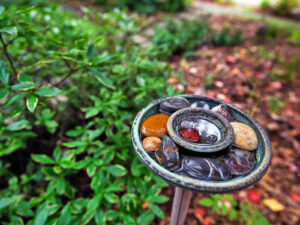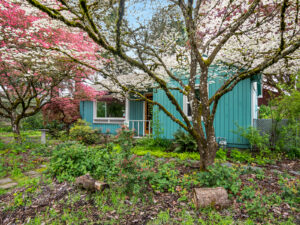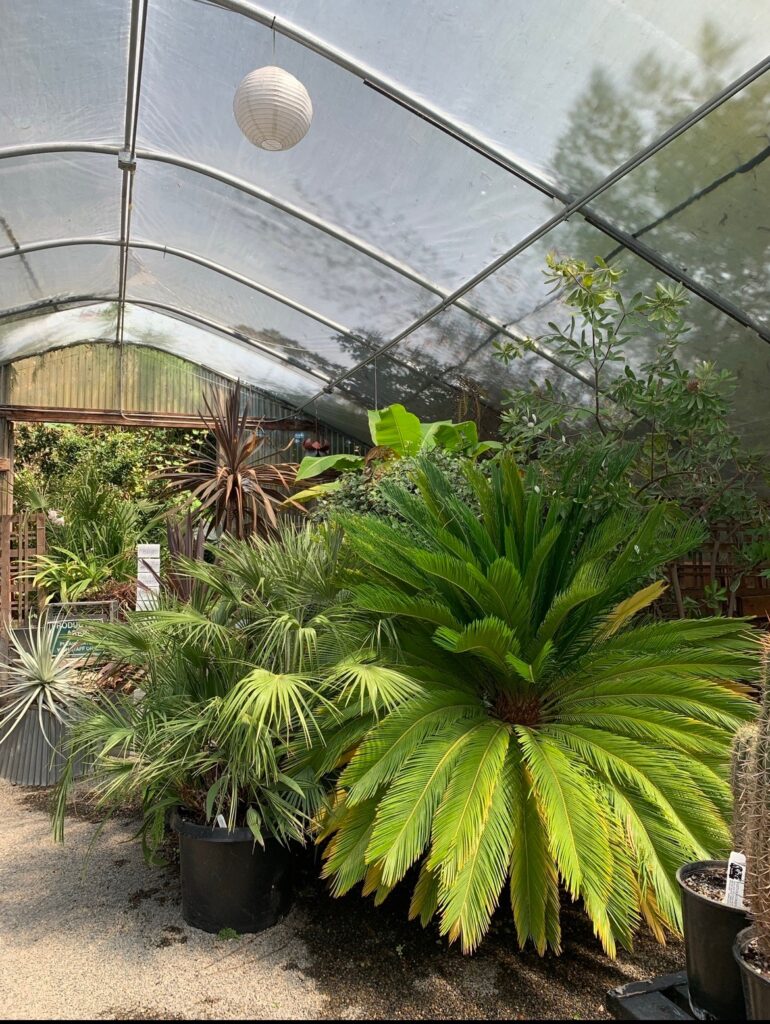
It’s the last week of September, the mornings have cooled, and those drizzly days have started to show their face again. As the tomatoes do a nosedive and the dahlia pump out what feels like a final rush of blooms (trust me, they’ve got weeks left to go)- you might be thinking the season for planting is…. over!
But don’t put those garden gloves away just yet- autumn in the Pacific Northwest is an excellent time to get back in the dirt with a sense of enthusiasm. The days are still long, the temperatures warm enough to encourage plant vigor, and more frequent rainfall means your freshly buried babies will have the gentle hydration they need to get settled for winter.
If you’re a new (or, existing) homeowner who’s been waiting for the perfect moment to renovate a landscape, now is the time to do so. With weeks of gentle temperatures ahead of us, it’s generally safe to continue digging and planting until around our first frost (usually early November).
Fall is also a great time to lay fresh bark dust on your paths (to keep those muddy ruts at bay) and compost on your planting beds. The nutrient-dense layer will help insulate and feed plants through the winter, so they survive the cold temps and emerge satiated and strong in spring.
Whether you’re planting trees, shrubs, hardy perennials, or spring-blooming bulbs- we’re lucky to live in a city rich in high quality nurseries. Here are five of my favorite places to shop (as well as what I like to buy from each):
Portland Nursery: With two Southeast Portland locations (SE Stark and SE Division), you can find just about anything you’re looking for at this gardener’s paradise. While prices tend to be a little higher than your average box store, the quality and selection of plants available can’t be beat. If you’re looking for a special variety of Heuchera, Rose, Clematis, Japanese Maple, Hellebore, or flowering bulb- this is where you’re most likely to find it.
Both Portland Nursery locations have information/reference desks on site, which are often staffed by Master Gardeners knowledgeable in topics like pruning, pest management, and soil health. If you’re looking for houseplants, both sites have a great selection of indoor specimens; however, the plant atrium on SE Division is nearly quadruple the size of the one on SE Stark, and usually includes a variety of specialty cacti, citrus, and orchids.
Cistus Nursery: Located 15 miles NW of Portland on Sauvie Island, Cistus specializes in Mediterranean climate, southern hemisphere, hardy tropical plants, and more. Owned by renowned horticulturalist Sean Hogan, Cistus isn’t just a resource for interesting plants- it’s a botanical wonderland worth visiting in itself. Densely planted with species you wouldn’t expect to see growing in the PNW, Cistus is an inspiring place full of fascinating specimens you’ll want to take home- including Eucalyptus, Yucca, Agave, Manzanita, and Hebe (to name a few). If you’re looking for “standard” plants that you can find everywhere else- this isn’t the place for that. If you’re looking for something truly unusual- go here.
One Green World: This SE Portland nursery specializes in fruiting trees/shrubs, berries, vines, unique citrus, nut trees, and quirky southern hemisphere varieties like Chilean guava. While the bulk of their business is mail order, their nursery off SE Foster was recently expanded and is worth a visit- especially if you’d like to see what certain varieties look like once they’ve been planted in the ground and have a few years of growth behind them. If you’re a fiend for figs, a lover of olives, or interested in planting species like pineapple guava, yuzu citrus, or fruiting plum- OGW will usually have the best selection in town.
OGW’s online catalog is extensive and fun to browse- you can also usually grab a paper copy on site, which is great for wintertime browsing on the sofa with a hot cup of coffee/tea. They do tend to sell out of things quickly- so order early and sign up for notifications on items that are listed as out of stock.
Tony’s Garden Center: This family-run nursery has three Eastside locations – one on SE Holgate, one in Damascus, and the other in Happy Valley. Their prices are reasonable, the selection is solid, and the staff is super friendly. If I’m looking for general landscaping plants, vegetable starts, colorful annuals for my seasonal pots, or affordable (small) perennial flowers for my cutting garden, I go here.
Tony’s offers affordable delivery in the metro area, so if you’ve ordered too much to carry home, they’ll load it on a truck and drop it on your driveway- usually that same week.
Xera: Specializing in plants that are especially well-adapted to our Zone 8b conditions (wet winters, dry summers), this small SE Portland nursery is a must-visit resource for folks who are interested in native plants or xeriscaping (i.e., gardens that don’t need supplemental water in summer). While the footprint of the nursery is small (essentially, the front parking lot of an inner SE commercial building), the range of species offered is large.
Finding what you’re looking for at Xera can sometimes be challenging; their selection changes often, their hours are limited, and they sell out of certain things quickly. But, the quality of their plants is good and they carry things you won’t find anywhere else. While they post a new availability list on their website every week, plants are catalogued by their botanical/latin name (i.e., no “common” names). As a big plant nerd (with Master Gardener training) myself, I know the names of a LOT of plants. But I don’t always know their latin name- and the availability list doesn’t provide much detail in terms of plant habit, bloom color, etc. I recommend visiting the store in person so you can see the plants in person and talk to a knowledgeable staffer before buying.
While these five nurseries are my most-visited favorites, there are many other wonderful nurseries in and around Portland that I love patronizing. If you have a favorite, I’d love to know about it! And, if you’re interested in more plant talk with a plant nerd, I’m always sharing plant/garden photos, house/design inspo, and (occasionally) floral arrangements on Instagram: @hiredthumb
